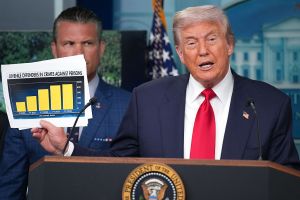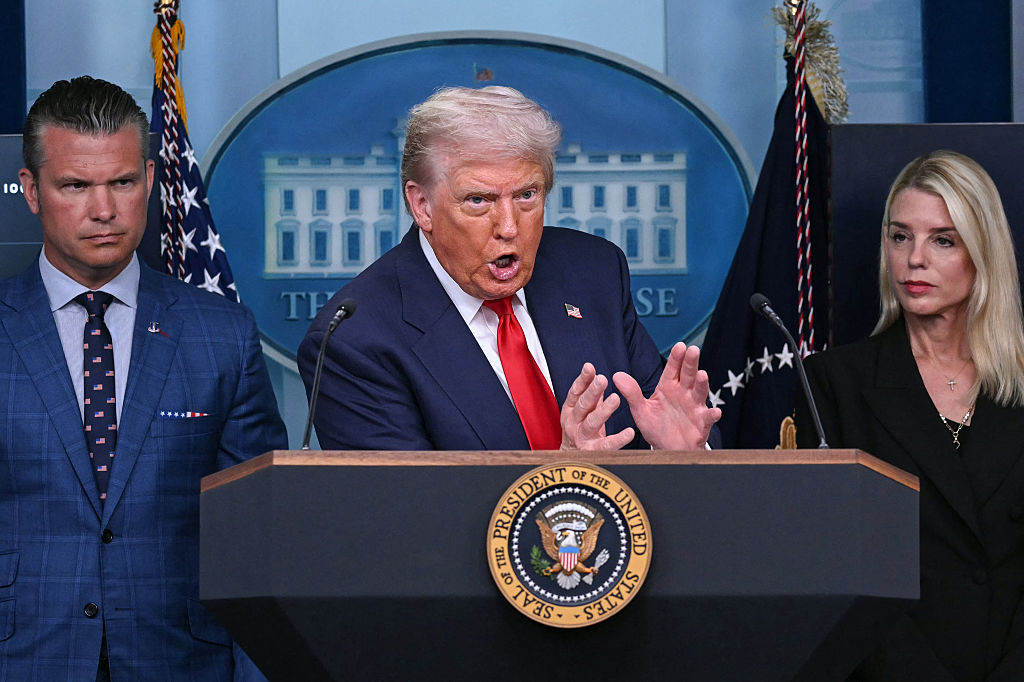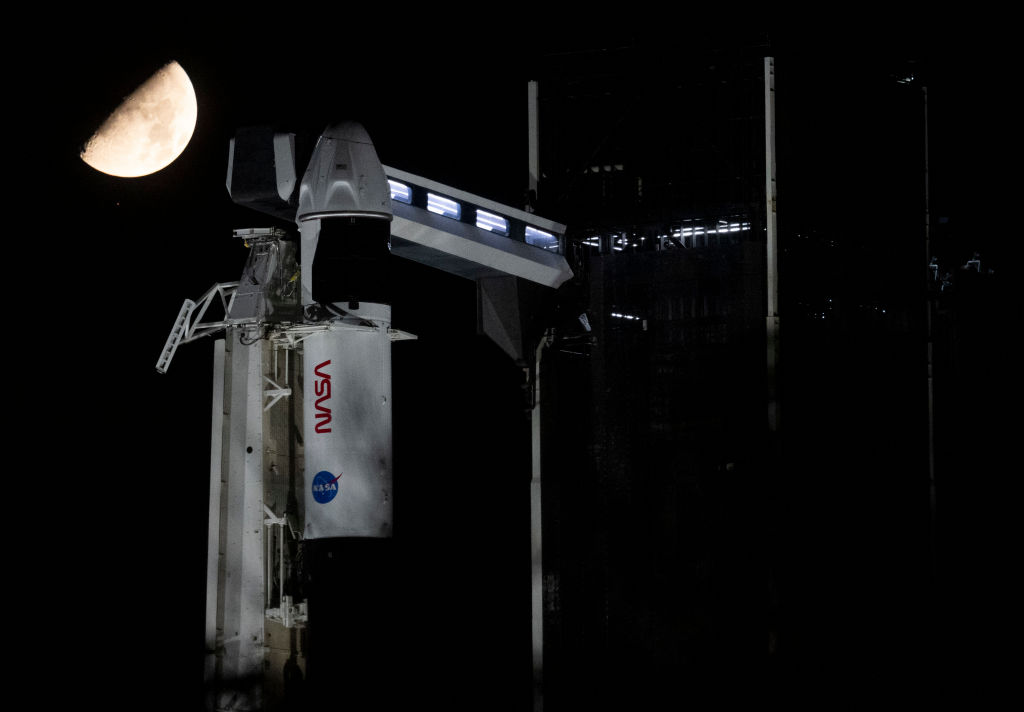Bret Stephens has come a long way in his estimation of Donald Trump. Back in 2016, when Trump was first running for the presidency, Stephens wrote in the Wall Street Journal that “the candidacy of Donald Trump is the open sewer of American conservatism.” As the election season progressed, Stephens mostly dropped the sewer talk, sliding into its place evocations of Trump’s “darker antipathies” and warnings that his “candidacy is manna to every Jew-hater.”
A “Trump administration,” he explained,“would give respectability and power to the gutter voices of American politics.” At one point he giddily announced that Trump’s chances of victory were “next to nil.” When the worst happened, and Trump actually won the 2016 election, Stephens fell back on Trump’s “unrelenting and apparently irrepressible bigotry, misogyny, bullying and conspiracy-mongering.” In succeeding months, he oscillated between shock and outraged disappointment.
How could the Republican party do this to him? How could the voters? Stephens’s anti-Trump animus eventually was too much for the opinion pages of the Wall Street Journal and he had to seek refuge in the Trump-phobic New York Times.
The most reliable prop in anti-Republican — and a fortiori anti-Trump — rhetoric is comparison with the diminutive but excitable Austrian with the funny mustache and a weakness for leather. I once looked it up, and yes, every Republican candidate since Ronald Reagan has been described as “literally Hitler.” I had thought the argumentum reductio ad Hitlerum had worn out its welcome, partly because it was so absurd. Ronald Reagan? Mitt Romney? The Bushes?
Yet Stephens has once again demonstrated that the Hitler wheeze, though tired, still has a bit of mileage in it. Responding to Vice President J.D. Vance’s speech at the Munich Security Conference in February, Stephens began with a little cadenza on everyone’s favorite Hitler proxy, Joseph Goebbels. Yes, that’s right. Stephens suggested that warning the crowd of European globalists that untrammeled illegal migration was a threat, that free speech was inseparable from the fortunes of liberal democracy, and that Europe would have to start taking more responsibility for its own security made Vance a malignant patsy on the model of Neville Chamberlain.
One silver lining of Stephens’s columns is that they tend to possess the virtue of clarity. You know where he stands. In this case, the title reads “Vance’s Munich Disgrace” and goes on to talk about the Vice President as a disgrace. His concluding words about Vance and his talk are “a disgrace.” In any given paragraph, you know where you stand.
The German comparisons have no doubt been stoked by relations between the MAGA coalition and the Alternative for Germany party (AfD). It’s certainly got Stephens’s attention, who notes the VP, or “the man who refuses to say that Trump lost the 2020 presidential election” had the audacity to meet the AfD’s leader when he was in Germany. “Meeting with the leader of the far-right Alternative for Germany,” he cries, “has caused a scandal because it is a scan- dal, a monument of arrogance based on a foundation of hypocrisy.”
A couple of comments. There are plenty of people, including the author of this column, who would refuse to say that Trump lost the 2020 presidential election for the simple reason that it was a deeply compromised election, as people like Mollie Hemingway have shown (see her book Rigged: How the Media, Big Tech, and the Democrats Seized Our Elections).
And what is so horrible about meeting the leader of the AfD? Stephens describes the party as “far-right” but I suspect that is only because everyone’s computer at the New York Times automatically inserts the word “far” whenever it encounters the political deployment of the word “right.”
In fact, the AfD is mostly a center-right party. It is also now Germany’s second biggest party, receiving its highest vote share ever in the February election. It does include some “alt-right” elements (“alt-right” is another favored term of abuse in which lack of substance coexists perfectly with political animus). But ask yourself this: are the fringe elements of the AfD any further out on the spectrum than the left wing of America’s Democrats? Ponder the ravings of Ilhan Omar, AOC, Eric Swalwell, Elizabeth Warren and Maxine Waters. The reason that many people, from Elon Musk on down, were rooting for AfD in the election was because it is the only party that treats the existential threat of uncontrolled immigration with the seriousness it deserves.
“No voter on this continent,” Vance noted, “went to the ballot box to open the floodgates to millions of unvetted immigrants.” What they did vote for in Britain was Brexit. And more and more, all over Europe, Vance continued, “they’re voting for political leaders who promise to put an end to out-of-control migration.”
Does that make Vance akin to Goebbels? Are those sentiments “a disgrace”? I do not think so. But the fact that a prominent journalist in a formerly prominent media outlet could work himself up into such a tizzy over a speech that other serious commentators could praise as “truly Churchillian” illustrates two things.
First, the deep ideological divisions that make genuine discussion among opposing sides so difficult. And second, the cognitive and moral dangers of undiluted Trump Derangement Syndrome. If you are comparing Vance to Goebbels, and by extension to Hitler and the Nazis, then, I submit, you not only have a screw loose: the entire dashboard of your political outlook has worked itself loose and is swinging free.
This article was originally published in The Spectator’s April 2025 World edition.


























Leave a Reply